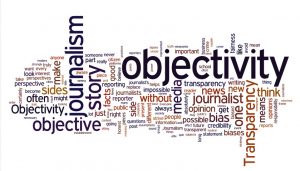Public interest, accuracy and diversity of opinion are amongst the editorial values that underpin ethical journalism. They are becoming increasingly fundamental in the era of social media, which allows for the public to scrutinise the media at the touch of a keyboard.
The media environment has changed drastically over the past decade, prompting journalists to meet the ethical standards of the profession. Reporting on matters of the public interest is a civic responsibility of the press. Although it is an integral principle of the practice, the notion of public interest is not universally defined. Each news organisations with varying objectives may interpret this term differently. Stories that raise questions about public interest may deal with the privacy matters, exposure of corrupt governments and politicians, as well as censorship in many countries. According to The BBC News, “it (the notion of public interest) can be used to justify the apparently unjustifiable”. Today, journalists must be able to distinguish between what is in the public interest, verses what the public is interested in.

Featured photo by “Spot Us” is licensed under CC BY-SA 2.0
Information is becoming increasingly easier to share through social media platforms. Journalists need to ensure that their verifiable facts are correct, as well as accuracy when reporting opinions expressed by others. Publishing misleading information online cannot be erased and can be shared at a faster rate than ever before. Not only could this damage an individual’s reputation, but undermine the trust of the whole organisation. The evolution of social networking has presented journalists with unprecedented demands of speed and accuracy. These conflicting principles are a source of great pressure as information can be spread rapidly through the internet. Journalists now need to compete for the millennial audiences who consume their news solely through social media, whilst maintaining the highest level of accuracy and truth.
Finally, impartiality is about providing a comprehensive and balanced view. This principle requires a journalist to actively research and report both sides of a story. In a country where cultural diversity is at an all-time high, journalists must be sure to report on political, racial and religious issues with total impartiality, excluding any preconceived bias. This is fundamental in allowing the diversity to enrich the lives of the growing population. It has been important for me, as a student, to note that the notion of impartial journalism does not rule out reporting issues that are seen to be controversial. Nor does it prohibit expressing a judgment if it is fair, researched and based on solid facts.

The paramount qualities of good journalism, to me, are honesty, integrity and accessibility. Today’s world is a difficult time for any journalist to try and represent what can be unpalatable and uninteresting to most people, and to instead make current events stimulating and relevant. This is perhaps where honesty, integrity and accessibility are most tested. In considering the current environment faced by many journalists in relation to job security, pressure to produce successful and popular content when competing against online producers has reached a boiling point. The rise of “Fake news”, click-bait and abandonment of core journalistic principles has seen some aspects of journalism been completely forgotten. If we hark back to the main purpose of journalism, which is the role of making accessible important information from governments and institutions to citizens, honesty and integrity are assumed. The journalist could be considered the “middle man” in the transfer of information from institutional powers to laypeople, and in this transfer of information, honestly is perhaps the most important aspect. Citizens must be able to rely upon news sources for true facts in order to make educated decisions relating to governance, education, health and other interests. It is when this element has been taken away we see how important it was in the first place. Additionally, accessibility is for me one of the most important requirements for good journalism. More than once I’ve been taken in by an interesting headline on an issue I care about only to find that the article is full of advanced jargon and presumed knowledge. In saying this, I don’t expect to pick up the Harvard Financial Review and immediately grasp complex financial problems I’ve never heard about. But, I do believe that politics needs to be made accessible to any person, as as I iterated before, when people can’t access information because it was written to complex (or because it is untrue), then journalists have not fulfilled their most important role. In terms of digital tools, these qualities are things that I believe will translate easily across from traditional media to its digitised counterpart. We can now use videos and photographs as evidence, infographics and diagrams to portray information and the speed of the internet to have real time news updates. I most often find these values portrayed in articles by the New York Times such as the article entitled “International Monetary Fund Based in Beijing? Maybe, its Director says”. This article is concise, with accompanying statistics, and as someone who is not incredibly well versed in international politics, I found it easy to comprehend. Another news producer I like is ‘Vox’ channel on YouTube, and National Geographic, for similar reasons.
https://www.nytimes.com/2017/07/24/us/politics/christine-lagarde-international-monetary-fund.html?rref=collection%2Fsectioncollection%2Fpolitics&action=click&contentCollection=politics®ion=stream&module=stream_unit&version=latest&contentPlacement=4&pgtype=sectionfront